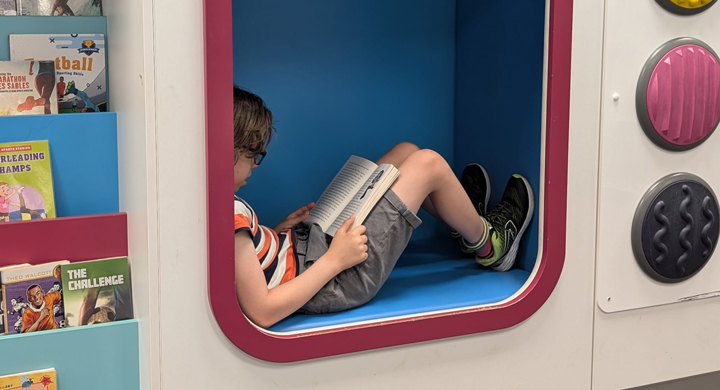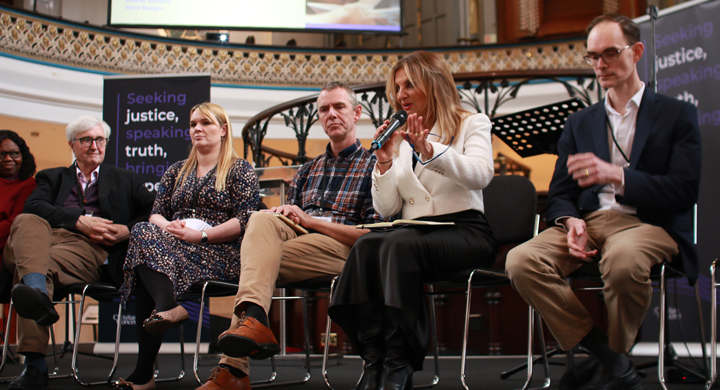Communications Manager Paul Huxley shares his experience home educating his children, and questions what implications these ‘crackdowns’ on home educators may have for faithful Christian parents
Two stories relating to home education have hit headlines this week.
First is the news that the number of children in home education has risen sharply in England.
As of October this year, government records show that 111,700 children (1.4%) were in elective home education – up 21% from last year.
Second is the tragic story of Sara Sharif, who was monstrously killed by her father and stepmother after being taken out of her school.
Put together, these stories appear alarming. How many more children like Sara may be being abused behind closed doors under the guise of home education?
It has fuelled more discussion about the government clamping down on home education, with House of Commons leader Lucy Powell saying that the government will introduce “stronger safeguards for children being taken into home education”.
On one hand, this is a good instinct. The restraint of evil and punishment of those who do violence is core to the government’s purpose, even if that violence is done in a family context (Genesis 9, Romans 13).
Nevertheless, for Christian home educators like myself, this announcement comes with a deep sense of foreboding. There are many good reasons why people choose to educate at home and for them, an already challenging endeavour is likely to get even harder.

Why do people home educate?
The reasons given for home education in this week’s new data are spread quite evenly across various reasons. ‘Philosophical reasons’ (14%), ‘mental health’ (14%) and ‘lifestyle’ (9%) were the main reasons listed, with various forms of dissatisfaction with schools adding up to another 13%.
‘No reason given’, ‘unknown’ or ‘other’ made up a further 42% of home educators, which may be largely due to parents’ concerns about unwarranted interference.
From my conversations with other home educators, it is often a mix of several reasons that lead to home education. For example, philosophical convictions (that children shouldn’t be encouraged to identify as the opposite sex) and dissatisfaction with a local school (that might be beholden to LGBT ideology) may go hand in hand.
Christian home educators may be concerned about specifically highlighting their religious beliefs for fear that they will be regarded as extremists. The data suggests only 1% of home educated children are due to religious beliefs but my experience would suggest that it’s a factor for many more parents.
There is a real fear that if you point out basic Christian beliefs (e.g. about creation, sex or gender) that are often contradicted at state schools, you will be seen as a weirdo who needs even more ‘supervision’ (in reality, intrusion) from the authorities. It is tempting instead to highlight philosophical or practical reasons when questioned.
Home educating isn’t easy
And us home educators get plenty of questions. Quizzical looks as if we must be mad or when our children are spotted in public during school hours. There is a constant sense of having to justify what may be very personal reasons for our choices before a judgmental public who think our children won’t be able to read or make any friends.
There are many positives and joys about home education. Dealing with these external pressures is not one of them. Council workers in Elective Home Education (EHE) could be genuinely helpful and supportive but often try to force their vision of education – their methods and priorities – in inappropriate ways. Talk to them about your Christian or philosophical reflections on Deuteronomy 6:7-9, the trivium, Charlotte Mason or Dorothy Sayers and their eyes are likely to glaze over.
Your children are memorising scripture, historic Christian prayers and hymns? Your local EHE representative is probably uninterested and wants to judge you against whatever the National Curriculum says they should be learning.
This is the kind of context that home educating parents operate in. As well as sacrificing time energy and money, we get judgement and suspicion.
Double standards won’t help
So, when the government announces mandatory registers or other crackdowns on home education, many of us groan. Our children are not invisible to the community – they go to activity groups, are seen at church every week and by wider family. But every strand of sometimes-unbrushed hair or bruise from attempting an overly-ambitious gymnastics trick is already leading to understandable but over-zealous referrals and interference.
Meanwhile, when Sara Sharif was in school, picking up bruises on her face, then covering them up with a hijab, nothing meaningful happened.
In the Independent, Holly Evans writes:
“Yet despite the shocking nature of her death, warning signs had been present for years that all was not right in the Sharif family home. Social services, police and the family courts all knew about past accusations of abuse levelled at [Urfan] Sharif but they went “absolutely nowhere” and did not prevent him from gaining custody of Sara.”
How are more stringent requirements on home educators going to solve a problem when everyone who could have helped Sara in this situation already had enough information to act? The last four months of Sara’s life, when she was not at school, seem to have been brutal. But all the evidence was there for the authorities to act on. Overly stringent requirements on home educators would not change this.
With the best intentions in the world, no system of safeguarding will ever be foolproof. We must think about what proposed measures will actually lead to, not just their intentions. I’m concerned that new measures will end up meaning vast quantities of paperwork and unwarranted intrusion into family life, while overloaded social workers, family courts and police are left unable to quickly act on the most serious of cases.
Support for Christian home educators
The education team at Christian Concern, led by Steve Beegoo, is highly supportive both of Christ-centred schools and Christian home educators. Along with the legal team and partnering organisations, they have a lot of experience both in discipling children through Christian education and supporting parents – whether their children are home educated, at a state school or at a Christian school.

When I’ve had a question about something, I’ve received helpful pointers and guidance – a service they gladly give out for free, week in, week out.
But even if you’re linked with other home educating Christians, it can be a lonely endeavour. And for some, home education is a necessity rather than a choice – perhaps a church-supported Christ-centred school would be a huge blessing to you and your community.
We’re holding our second Education Revolution conference in April next year, bringing together all sorts of Christian educators – parents, teachers, academics and others – to support various initiatives in these areas.
Home educating leads to wonderful opportunities for children to grow up knowing and loving the Lord and being well-equipped to love their neighbour.
However, it is challenging. If you’re already doing it, considering it or involved in any other kind of Christian education initiative, Education Revolution 2025 will be a wonderful encouragement to you with the opportunity to meet like-minded people and be resourced for your calling.
See you there?

Tickets for Education Revolution 2025 are available at a discounted rate until 1 March 2025.



